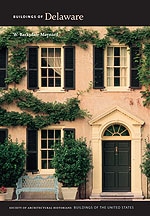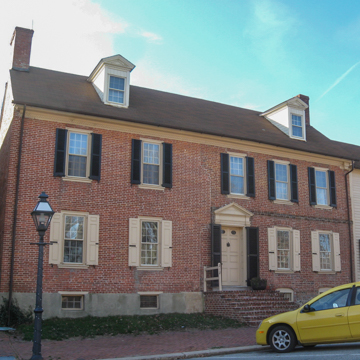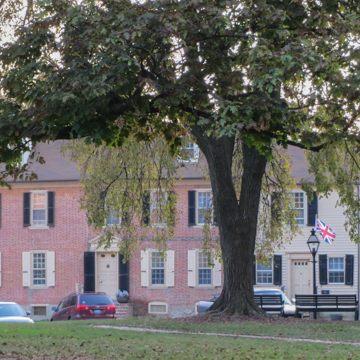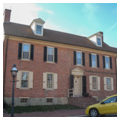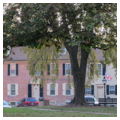Deed records for the lot go back to 1670. The original brick section was built by merchant and innkeeper Sylvester Garland for his daughter, Soetje; decades later it was extended eastward, with no attempt to emulate the fine early-eighteenth-century brickwork of the original. The front door with bull's-eye windows dates from the first period of construction; its surround, from the second. The early stairway inside has heavy, turned spindles. Federal-era chimneypieces are richly ornamented. The house changed hands many times before prominent Delawarean James Booth Sr. bought it in 1785. Nine years later he sold it to John Bird, member of the committee that hired Benjamin Henry Latrobe to survey the town. His son, Robert Montgomery Bird, born in the enlarged house, became a famous novelist and playwright. Judge James Booth Jr. later lived here, and when juries deliberated late into the night, he would pull on slippers and gown and dash across the street to hear the verdict.
You are here
James Booth House
If SAH Archipedia has been useful to you, please consider supporting it.
SAH Archipedia tells the story of the United States through its buildings, landscapes, and cities. This freely available resource empowers the public with authoritative knowledge that deepens their understanding and appreciation of the built environment. But the Society of Architectural Historians, which created SAH Archipedia with University of Virginia Press, needs your support to maintain the high-caliber research, writing, photography, cartography, editing, design, and programming that make SAH Archipedia a trusted online resource available to all who value the history of place, heritage tourism, and learning.






